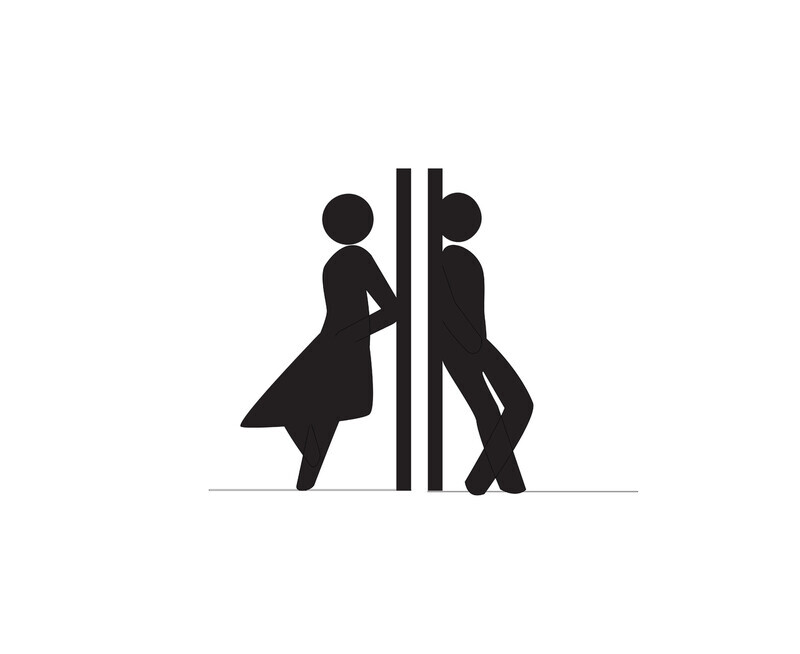hankyoreh
Links to other country sites 다른 나라 사이트 링크
Across the world, far-right parties use gender divide to woo young male support

“Real men are on the right. I stand with those men.”
Maximilian Krah, a member of the far-right political party Alternative for Germany (AfD), expressed such sentiments in a 40-second video uploaded to social media.
“We need more men to fight with us for the right-wing agenda,” he said, appealing for support in a video that has been viewed more than 2 million times.
France 24 reported that Germany’s far-right is “deliberately trying to rope in young men,” highlighting the AfD’s attempts to woo men in their 20s by exploiting issues such as high inflation and immigration to their own advantage.
Many far-right parties are jumping on the bandwagon to capitalize on the growing rift between young men and women when it comes to perceptions of social and gender issues. In particular, they are taking advantage of the fact that Gen Z women tend to have progressive views on gender roles, while their male peers are more conservative than even the men of previous generations.

Multinational market research firm Ipsos released findings from a poll on March 4 that highlighted this phenomenon, calling the growing polarization on gender issues a global phenomenon.
Based on a survey of 24,269 men and women aged 18 and older in 31 countries, including South Korea, India, the US, Germany and Chile, Ipsos found that millennials and Gen Z — men in particular — “are not progressive” when it comes to gender issues.
The study compared baby boomers (those born 1949-1964) to Generation X (those born 1965-1980), millennials (those born 1981-1996) and Gen Z (those born 1997-2006).
The percentage of men who agreed with the statement, “We have gone so far in promoting women’s equality that we are discriminating against men,” increased with each younger generation, with 43% of male baby boomers, 53% of men belonging to Gen X, 57% of male millennials, and 60% of Gen Z men agreeing.
Notably, while 60% of Gen Z men stated that “reverse discrimination” was a tangible phenomenon, only 40% of Gen Z women agreed, making them the least likely of all women to think so.
Baby boomers were the least likely to agree that a man who stays home to look after his children is “less of a man,” with 10% of men and 11% of women agreeing with the sentiment, showing a barely discernible difference in perception between the genders. However, 31% of Gen Z men and 20% of Gen Z women expressed agreement with the notion, widening the gap between the genders to 11 percentage points.
The Financial Times has called this a “great gender divergence” among the under-30s of today when it comes to social and political tendencies, writing, “Gen Z is two generations, not one.”
This great gender divergence also has a decisive impact on political behavior, such as voting. The Spanish far-right political party Vox is explicitly appealing to sexism to gain power.
“Vox denies the existence of discrimination against women, [...] attacks feminists calling them ‘feminazis,’” which is how the party has emerged as a “new key political actor attacking feminist politics and protests,” wrote Eva Anduiza and Guillem Rico, professors at the Autonomous University of Barcelona, who research Vox.
“Sexism is susceptible to showing short-term changes with important political consequences,” the professors conclude.
By Jang Ye-ji, staff reporter
Please direct questions or comments to [english@hani.co.kr]

Editorial・opinion
![[Column] Season 2 of special prosecutor probe may be coming to Korea soon [Column] Season 2 of special prosecutor probe may be coming to Korea soon](https://flexible.img.hani.co.kr/flexible/normal/500/300/imgdb/original/2024/0426/3317141030699447.jpg) [Column] Season 2 of special prosecutor probe may be coming to Korea soon
[Column] Season 2 of special prosecutor probe may be coming to Korea soon![[Column] Park Geun-hye déjà vu in Yoon Suk-yeol [Column] Park Geun-hye déjà vu in Yoon Suk-yeol](https://flexible.img.hani.co.kr/flexible/normal/500/300/imgdb/original/2024/0424/651713945113788.jpg) [Column] Park Geun-hye déjà vu in Yoon Suk-yeol
[Column] Park Geun-hye déjà vu in Yoon Suk-yeol- [Editorial] New weight of N. Korea’s nuclear threats makes dialogue all the more urgent
- [Guest essay] The real reason Korea’s new right wants to dub Rhee a founding father
- [Column] ‘Choson’: Is it time we start referring to N. Korea in its own terms?
- [Editorial] Japan’s rewriting of history with Korea has gone too far
- [Column] The president’s questionable capacity for dialogue
- [Column] Are chaebol firms just pizza pies for families to divvy up as they please?
- [Column] Has Korea, too, crossed the Rubicon on China?
- [Correspondent’s column] In Japan’s alliance with US, echoes of its past alliances with UK
Most viewed articles
- 1‘We must say no’: Seoul defense chief on Korean, USFK involvement in hypothetical Taiwan crisis
- 2[Editorial] Korea’s surprise Q1 growth requires objective assessment, not blind fanfare
- 3[Column] Season 2 of special prosecutor probe may be coming to Korea soon
- 4Division commander ordered troops to enter raging flood waters before Marine died, survivor says
- 5Is Japan about to snatch control of Line messenger from Korea’s Naver?
- 6The dream K-drama boyfriend stealing hearts and screens in Japan
- 7[Column] ‘Choson’: Is it time we start referring to N. Korea in its own terms?
- 8No good, very bad game for Korea puts it out of Olympics for first time since 1988
- 9[Special report- Part III] Curses, verbal abuse, and impossible quotas
- 10S. Korea “monitoring developments” after report of secret Chinese police station in Seoul